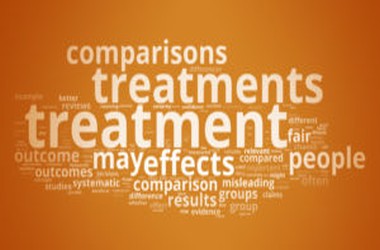In BMJ Evidence-Based Medicine, Iain Chalmers and colleagues set out the Key concepts for Informed Health Choices.
Carl Heneghan

Shared Decision Making, according to NHS England, means patients can review all the treatment options available to them and participate actively with their healthcare professional in making that decision. The National Institute for Health and Care Excellence (NICE) state it is vital that: ‘care or treatment options are fully explored, along with their risks and benefits.’ While in the US, the National Institute of Health consider: ‘Shared decision making is a collaborative process that encourages health care professionals and patients to make health care decisions together.’
I think you get my point: everyone talks about informing patients and the public, sharing decisions, discussing treatment preferences, but do they consider what informed health choice means, and what skills are required by individuals to inform their own heath care decisions.
A framework for helping people learn how to assess treatment claims and make informed choices, published in this edition of BMJ EBM, therefore, sets out the key concepts required to assess unreliable claims, understand whether treatment comparisons are fair and reliable and make informed choices. This framework is the first of its kind and is designed for ‘teachers, learners and researchers to map out what people need to learn.’ That’s basically, all of us.
The current List contains 36 concepts, is reviewed annually, and you can find an up-to-date list on Testing Treatments interactive or the Informed Health Choices websites. It’s worth pointing out these concepts have been developed with explicit and pragmatic criteria, are under constant review, and are underpinned by many individuals who have taught, thought about and tried to inform choice. Some of the concepts have also undergone trials.
A randomised trial done in primary schools in Uganda showed that children, including those with poor reading skills, could be taught to apply 12 concepts and led to ‘a large improvement in the ability of children to assess claims about the effects of treatments.’
What do we, therefore, mean by informed health choice? Very little, if anything, if we don’t set out the concepts and skills required at the outset to inform choice.
It is increasingly clear, well it is to me, that we need a generational change in how patients and the public equip themselves to be informed. Effective healthcare practitioners will need to develop and maintain the skills needed to share decisions effectively, and organisations will need to develop plans to equip patients and the public with the essential skills to make and share decisions. Only then might we inform healthcare choice.
Access the free paper: Chalmers I, Oxman AD, Austvoll-Dahlgren A, et al. Key Concepts for Informed Health Choices: a framework for helping people learn how to assess treatment claims and make informed choices. BMJ Evidence-Based Medicine 2018;23:29-33.
Carl Heneghan is Professor of EBM at the University of Oxford, Director of CEBM and Editor in Chief of BMJ EBM
Follow on twitter @carlheneghan
Competing interests
Carl has received expenses and fees for his media work including BBC Inside Health. He holds grant funding from the NIHR, the NIHR School of Primary Care Research, The Wellcome Trust and the WHO. He is a co-aouthor on the paper and runs educational and training course in informing choice. He has also received income from the publication of a series of toolkit books published by Blackwells. CEBM jointly runs the EvidenceLive Conference with the BMJ and the Overdiagnosis Conference with some international partners which are based on a non-profit model.
